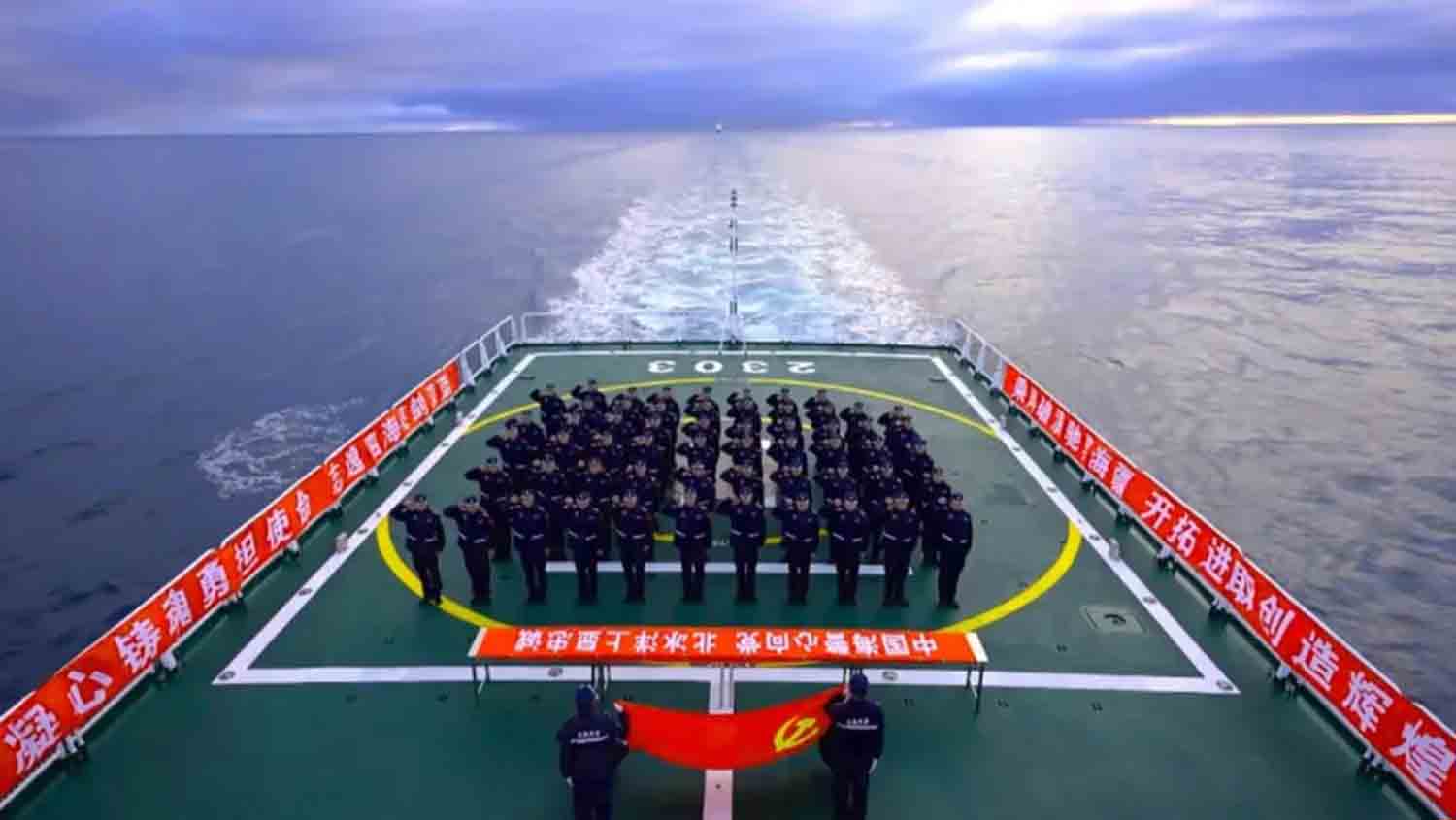Corruption within China‘s military may have hindered its advancement toward the 2027 military modernization objectives, according to the Pentagon annual report on Beijing’s military, released on Wednesday.
Over the past year, the Chinese military has implemented a comprehensive anti-corruption campaign, and just last month, the defense ministry announced the suspension of a senior military official who is currently under investigation for “serious violations of discipline.”
The extensive Pentagon report indicated that from July to December 2023, at least 15 high-ranking Chinese military officers and defense industry leaders were dismissed from their positions.
The report noted, “In 2023, the PLA faced a new wave of corruption-related inquiries and the removal of senior leaders, which may have impeded its progress toward the declared 2027 modernization goals,” referring to the People’s Liberation Army (PLA).
U.S. officials, including the Director of the Central Intelligence Agency, have stated that Chinese President Xi Jinping has instructed his military to prepare for a potential invasion of Taiwan by 2027.
China’s official modernization objectives for 2027 encompass enhancing the integration of intelligence, mechanization, and other capabilities, while also accelerating advancements in military theories, personnel, weapons, and equipment, as highlighted by the Pentagon.
China’s foreign ministry characterized the report as “irresponsible,” asserting that it serves as a pretext for the U.S. to uphold its military dominance. Ministry spokesperson Lin Jian stated during a Thursday news briefing that the U.S. report, similar to previous ones, disregards factual information and is rife with bias. He urged the U.S. to cease such reports and instead engage in constructive actions to foster stability in China-U.S. military relations.
Following the report’s release, Ely Ratner, U.S. Assistant Secretary of Defense for Indo-Pacific Security Affairs, indicated that the dismissal of 15 senior officials might be just the “tip of the iceberg.” He noted that China’s leadership would not implement such drastic anti-corruption measures unless they perceived a detrimental impact on the operational effectiveness of the People’s Liberation Army (PLA). Ratner remarked at the Center for Strategic and International Studies that the situation likely extends beyond mere financial misconduct.
He suggested that this crackdown could lead to a climate of risk aversion and “paralysis” among lower ranks. A senior U.S. defense official informed reporters that the anti-corruption campaign could also hinder military projects within China’s defense sector. The official, who spoke on the condition of anonymity, explained that uncovering corruption in one area often triggers a cascading effect, implicating additional officials.
The report highlighted several dismissals within China’s military rocket force, known as the People’s Liberation Army Rocket Force (PLARF), which is responsible for the country’s most advanced conventional and nuclear missile capabilities. It concluded that the discovery of corruption at this scale likely heightens the concerns of PRC leaders regarding the PLA, particularly given the PLARF’s critical nuclear mission.
In November, China announced that Admiral Miao Hua, a member of the Central Military Commission, the nation’s top military authority, was under investigation for “serious violations of discipline.” Miao held the position of the military’s chief political officer on the six-member commission, which is led by Xi Jinping.
Beijing has dismissed media claims suggesting that Defense Minister Dong Jun, who is subordinate to Miao, has been sidelined due to an investigation, labeling such reports as “sheer fabrication.”
According to a document accompanying the Pentagon’s report, “The PLA made uneven progress toward its 2027 capability milestone for modernization, which, if achieved, could enhance the PLA’s effectiveness as a military asset for the CCP’s efforts regarding Taiwan unification.”
A poll conducted by Taiwan’s leading military think tank in October indicated that most Taiwanese citizens believe an invasion by China is unlikely within the next five years, although they perceive Beijing as a significant threat to the democratic island.
Over the past five years, China’s military activities around Taiwan have notably increased, as Beijing considers the island part of its territory, despite strong opposition from the Taipei government, and has not ruled out the use of force to assert control.
Ratner commented that despite modernization efforts, it remains uncertain whether the PLA is making progress toward its objectives related to Taiwan, especially in light of U.S. initiatives aimed at maintaining deterrence in the Indo-Pacific region.
“They may be advancing in military modernization, yet they might find themselves just as far, if not further, from resolving some of the operational challenges they face,” he stated.
In response to the report on Thursday, Taiwan’s Defense Minister Wellington Koo affirmed that the military would continue to adapt its strategies, reinforcing its capabilities to prevent a full-scale invasion by China. “We will leverage our strength to deter any potential reckless actions in the Taiwan Strait,” he remarked to reporters in Taipei.
Discover more from Defence Talks | Defense News Hub, Military Updates, Security Insights
Subscribe to get the latest posts sent to your email.




